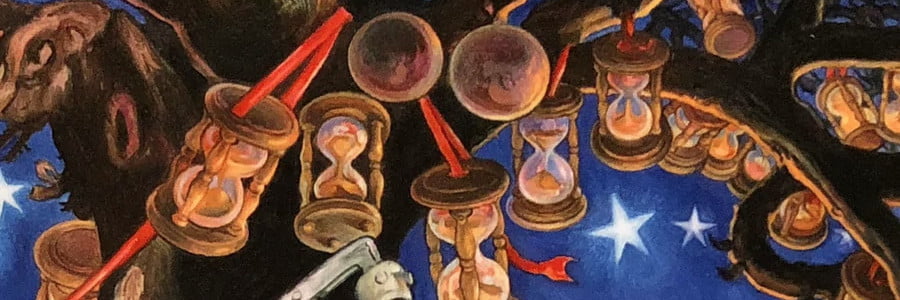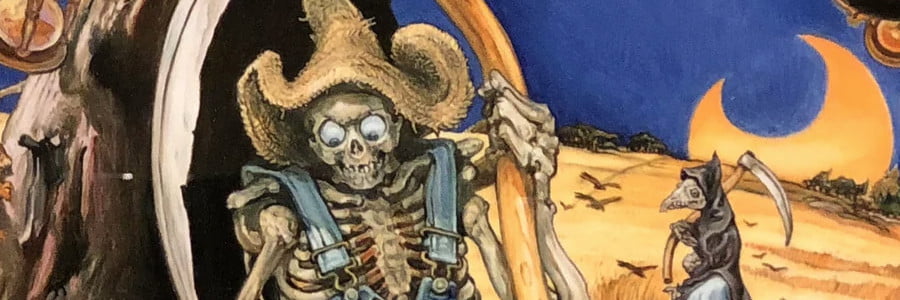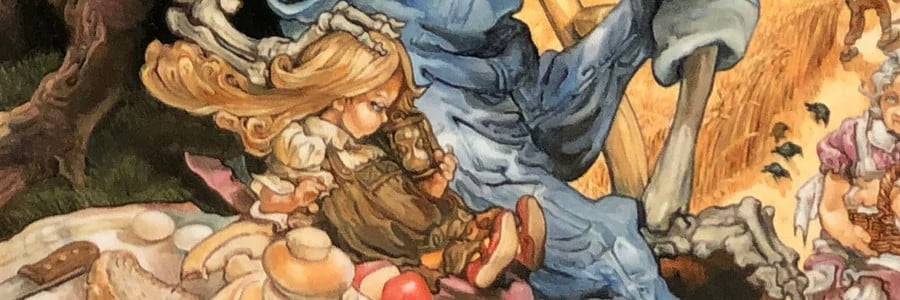Man.
The Discworld is incredible.

There are 41 Discworld novels, and with one exception, each novel is a standalone piece that requires no background reading in any other novel to work as itself; some concepts may be explained more thoroughly when they’re more focal, but if a story is about or includes stuff like L-Space or the Auditors or the strange mythology of the Nac Mac Feegles, the story that includes them will include an explanation of what they are and why you should care about them. Once you understand that concept, or recognise that character, though, you can see them show up in other people’s stories, and their presence connects the books one to another. There’s a web throughout the story where some characters are fleshed out through cameo appearances in other stories. It’s one of the masteries of the writing; that many of these characters have such whole identities that when you see Fred Colon for a quick joke in a novel where he’s not advancing the plot, he’s still believably Fred Colon and all these characters are whole people with realised inner lives.
The character who shows up in almost every Discworld novel with only two exceptions I’m aware of, is Discworld’s version of Death. There are five ‘Death’ novels, where they focus on the specific character and characters in his orbit, counting in order Mort, Reaper Man, Soul Music, Hogfather and finally Thief of Time. These books can be read in sequence to read the development of the character, his relationships, and his life – such as it is.
Reaper Man tells the story of when Death became a person for a while. A person who could live, a person who could die, and what it meant for Death to confront Death.
Spoilers below the fold. Also I guess content warning, because this is a book about Death.

In Reaper Man, the contention, presented by an otherworldy set of entities known as The Auditors, is that Death behaves too much like a person. He is too human, he’s addressed as a character, he’s got pronouns in bio after all. After the story of Mort, where we learned that Death kept a child, named his horse, and has a friend in the form of Albert, a house servant who cooks and cleans and keeps the place tidy. This, the Auditors believe, is untowards; he is now a person, he is a thing that can die, and he therefore should die.
Death finds himself now a character capable of living and existing in the moment; he has a life, and he can experience the world as someone who has time and has a life. Shocked and excited by it, he finds himself a small rural town, and attempts to experience that life. It’s a time to understand people, and yes, a time to face the fact that he will, one day, die.
This transition, by the way, between Deaths, does not go smoothly — there’s an entire second plot in this book, where a character named Windle Poons dies, then nothing happens, resulting in Windle Poons clambering back into his body and trying to find exactly what to do now he’s dead but not dead. Life is sloshing around, ghosts are filled with vigor, and a strange life-form that normally needs a lot of time and life to grow slowly bursts into life and starts trying to feed on Ankh-Morpork, the central city of the Discworld stories.
It’s not existential ends that bring Death to contention with the change, though. It’s being confronted with someone else’s death. An unfair death of a child. As a creature that lives, as a creature that gets to choose, Death can finally take action — and because of who he is, he can take action that nobody else could take. He gives some of his own time, and gives it to the child.
And then there’s like, a resolution and a denoument and it’s all very very good and I recommend you read it, or listen to the audiobook. It’s hard, if not impossible to properly convey how good the writing is; how engaging I find the writing, how the word choices sing in my heart, and how the character they convey carry forward with me. It’s a good book!

Reaper Man is full of these connected, layered ideas. There are some ideas that Pratchett wound up thinking could be done better (and were explored more thoroughly in other books), like the comparison between the Undead Rights groups and Queer Rights groups. Or that the organism trying to parasitically infest the city is a shopping mall. Neither of those are things that worked so well afterwards.
Still, there are some phrases and ideas that sing to me here. Particularly, though, the thing I carry from this book is its idea of a vision of what death is.
Death doesn’t exist, you know, right? Like, it exists only inasmuch as life exists, and life only exists as a sequence of chemical reactions that happens well before you’re ‘alive’ and continues well after you’re ‘dead.’ We draw a line where one thing starts and a similar thing ends, and we call that ‘being alive’ and then ‘being dead’ but the universe itself doesn’t care. The chemicals are reacting, the energy exchanged is correct, that’s what’s happening. That the chemical reaction is capable of recognising that it’s happening is odd, but it’s not like it’s permanent. It’s not like it’s inherently important.
Death, and life, therefore, are things that exist inasmuch as we give them names.
As much as we recognise them.
Death in Reaper Man presents two visions of death; two different ways to see it. One of them is a king, with a crown and a sword, a skeletal horse, a conquering force. The nation of Death only grows, and is constantly invading. Every day of life is spent seeing a thousand tiny steps towards Death’s nation, knowing that one day it will come for you, and your taking will add to the despair of those that wait behind. It is a view of an inevitability and a powerlessness. It’s true. The other is a reaper; literally, one who is there to conclude the growing; you know it’s going to happen, one day. The reaper does not gloat, the reaper is not cruel. There is no domination, there is just a conclusion.
In the end, what can the reaper offer but the harvest?
And that is also true.
Meanwhile both of them are tiny, tiny extrusions of a much vaster thing that exists and works on a scale we do not have means to understand and the only difference between them is how you talk about what they are. When Sir Terry Pratchett passed away, it was not, in my mind a brutal claiming by a conquering king; it was the completion of a beautiful and complex existence. The life was done, but now all that remained was the memory of that life in the life of everyone around. There had been the harvest.
Reaper Man was a book I didn’t appreciate the first time I read it. I liked it! But what I liked most of all was the story of Windle Poons fighting the Maul, and the very funny narrative around the spirit channelling. I loved the crescendo in the Maul of a boogeyman refusing to hide behind the door.
Now, I can appreciate more how much it feels important to try and make right those moments with people. How towards the end of the life, just giving someone something to smile with on the way out would be nice.
We are succeeded only by our memories.
What can the harvest hope for, if not but the care of the reaper man?